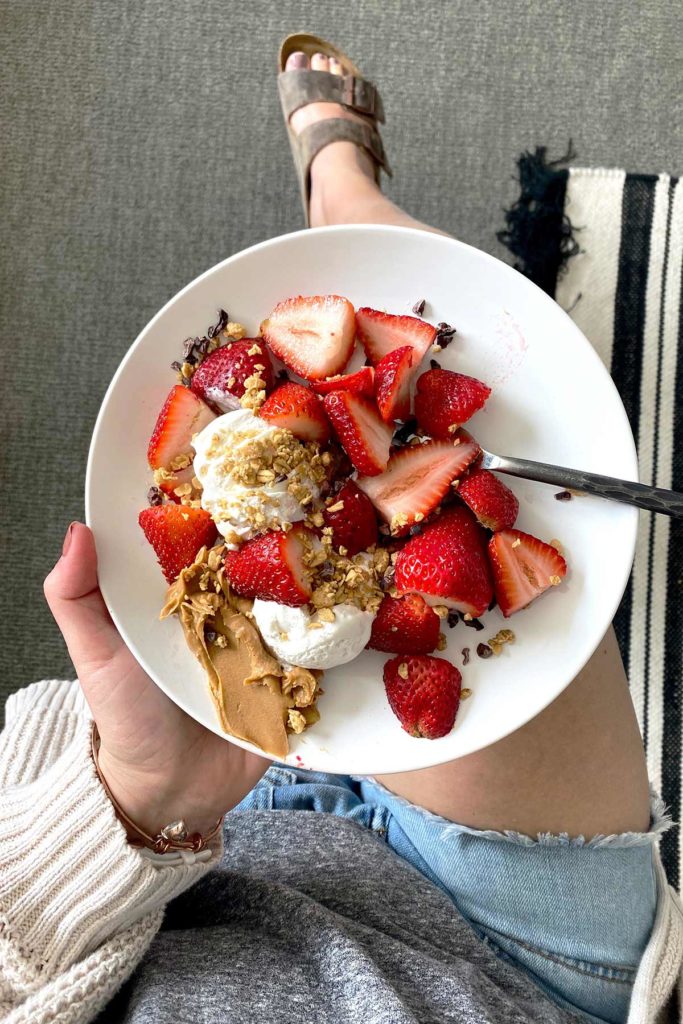
It’s the bacteria you already have that is the answer to how to heal your gut.
Did you know, 70% of your body’s immune system is found in your GI system? Or that 95% of your serotonin, that feel-good hormone, is found in your gut? Gut health is vital, and yet at the same time, it’s become highly commercialized.
This leaves me wondering, are we spending more time fixated on adding gut bacteria that we forget to take care of the bacteria already there?
Here’s what you need to remember to heal your gut.
Too much of a good thing can turn bad. That is the case with prolonged and constant probiotic use. Just like all things inside the body, it’s always about balance. When you add too much good bacteria, you easily throw your gut health out of balance, creating bad flora.
Yes, probiotics can be good, but the word of caution is, don’t overdo it and miss out on the value of non-probiotic gut healers that healthify what’s already in there.
Here are the “better-than-probiotic” ways to heal your gut.
1. Circadian Intermittent Fasting
Just like your body, your GI system needs space to heal. In the presence of food, this is impossible, making fasting a critical element in healing. Sure, intermittent fasting has been a trendy wellness routine, but what’s more important than just scrunching your fed window into a shorter period is the timing in which you eat and when you fast.
Like all things in your body, your bacteria have a circadian clock. To your gut, there is a time to eat and a time to rest. The best time to eat when your bacteria are most awake and active, this happens to be with the sun.
Action Step: Eat your largest meals earlier in the day. Making breakfast and lunch the largest and most important meals. Supper should be your smallest.
2. Eat & Live Seasonally
The idea of change in the microbiome is nothing new; your gut microbiome is in constant flux. The unique mix of species found in your body changes according to what you eat, where you live, how much you exercise, how many contacts you have with animals and other people. Even how much time you spend inside.
But the recurring seasonal component is a new twist in microbial research, and scientists aren’t entirely sure why it happens. But what we know, your gut flora changes with each season so much so that bacteria present in one season can be extinct in another only to return upon the return of a season.
Action Step: What this means for our health is seasonality matters. Create lifestyle patterns associated with the season and eat what’s in season.
3. Reduce Your Stress Load
Stress and depression can reshape the gut bacteria’s composition through stress hormones, inflammation, and autonomic alterations. This is due to the gut-brain axis known as vagal tone and the depression of the parasympathetic state leading to a lack of healing.
Making stress the number one culprit of sluggish gut bacteria. And prolonged stress exposure is significantly damaging the flora inside of your body. Prolonged stress, decreases energy, decreasing healing and balance inside the body. Health always and forever comes back to energy flow.
Action Step: Daily, add rest-based activities and self-care to your life, working to restore your energy bank. Focus on energy fillers over energy drainers. Doing one thing every day that fills you up.
4. Nature Is The Best Medicine
Healthy gut flora contains a wide range of bacteria, many of which we encounter in the great outdoors. As they say, a little dirt never hurt anyone. Making nature our best medicine.
The more diverse your microbiome, the better balanced it usually is, which means that your chances of staying well are higher. One of the easiest ways to naturally increase your microbial diversity is simply by being around different types of bacteria. Being outside gives you exposure to all sorts of microbes that can benefit your microbiome.
Action Step: Get outside as often as you can, no matter what the weather brings. Take a walk. Have a picnic in the park or pick up the hobby of gardening. Do something outside to help heal your gut flora.
5. Abdominal Movement + Massage
A healthy body equates to a healthy flow. A healthy flow produces healthy bacteria that are able to move, grow, and achieve the nutrients it needs to flourish.
Move your abdomen through deep belly breathing, a self abdominal massage, or abdominal rolling. When you loosen up the stuck tissue, you open up a healthy flow helping the bacteria to breathe and achieve a healthy state. Plus, healthy flow banishes bloat and improves digestion.
Action Step: Set your alarm on your phone for every hour of your workday. Take two minutes to practice deep belly breathing. Take it to another level by practicing abdominal massage when you first wake up in the morning or before you go to bed.
6. Keep your GI Tract Hydrated
Hydration is critical to every living form. Drinking plenty of water has been shown to benefit the mucosal lining of the intestines, which is home to your gut bacteria. When they have a good, nutrient-rich foundation to live in, they can thrive.
Staying hydrated is a simple way to promote a healthy gut. But remember, hydration and fluid consumption are not the same things. Stick to hydrating beverages, cutting back on anything heavy in sugar, caffeine, or alcohol. All of which dehydrate the intestinal lining, decreasing flora.
Action Step: Keep a hydrating beverage on hand throughout the day. A glass of filtered water is all you need. A bonus is adding a few frozen fruit pieces or a pinch of salt to enhance hydration.
7. Skip Snacking + Grazing
Grazing or having 6-small meals a day has been a practice encouraged since the dawn of the food industry. But as the years progressed, science has shown that a constant influx of food can harm the gut bacteria, preventing them from healing. Just like all things, there is a time to eat and a time to rest. Not only should you practice intermittent fasting, but give your GI system a chance to catch up between meals. Even 2-4 hours between meals can make all of the difference. And when you do eat, eat what your gut needs. That includes a wide range of foods, but mostly plants.
Action Step: Eat meals, not snacks and make your meals full of a wide range of food, mostly plants.
